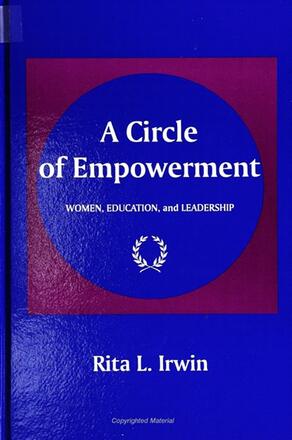
A Circle of Empowerment
Women, Education, and Leadership
Alternative formats available from:
This book presents a feminist perspective on educational leadership, and demonstrates that women conceptualize leadership differently than men.
Description
A Circle of Empowerment describes two studies. The first is a single case study which interprets the practical knowledge of an exemplary fine arts supervisor. An analysis of ethnographic data portrays the supervisor's practical knowledge as constructed around a dialectical orientation between two constructs or landscapes of imagery: the empowerment and power of teachers, and bureaucratic power and control of administration
The second and extended study describes the supervisor's influence on the practical knowledge of the consultants and specialists with whom she worked. Through in-depth interviews with five women, it became apparent that feminist principles were emerging. The supervisor's transformational and charismatic leadership style was characterized through four dimensions: visionary qualities, communicating a vision, creating trust and commitment, and empowering others. These dimensions propelled the supervisor's commitment to teach leadership through mentoring.
The results of these studies suggest that consultants and supervisors develop a unique form of practical knowledge geared to the political context of curriculum reform, and the practical knowledge of consultants and supervisors may influence the practical knowledge of teachers, specialists, and consultants. The studies suggest reconstructing leadership in favor of a role that is dedicated to commitment, caring, and collaboration within the circle of empowerment.
Rita L. Irwin is Assistant Professor of Visual and Performing Arts in Education at the University of British Columbia.
Reviews
"Irwin offers an excellent portrayal of a school district's instructional supervisory responsibility. The topic is significant on two bases: women's issues and school administration. It is important in itself because of the methodology employed in the study, but is also important for educational administration and curriculum and instruction because of its detailed description of school district supervision. The additional insights regarding women's ways of leading are particularly intriguing, since most central office staff positions are filled by women. This is the first work I know of that highlights this role." — Flora Ida Ortiz, University of California, Riverside